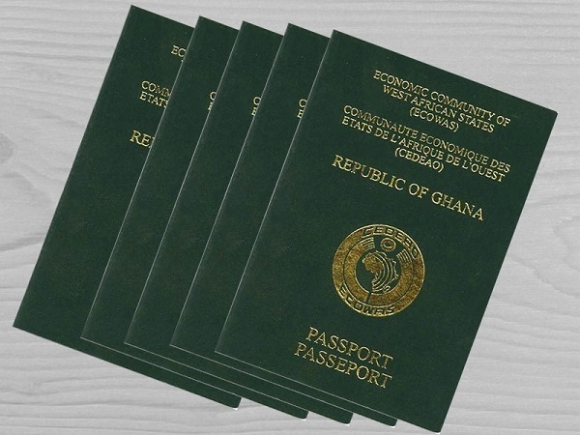
Visa discrimination: Scourge of African travellers!
It’s a few minutes to 4:00pm. I weave precariously through Accra’s ill-fated gridlock, enroute to the South Korean Embassy. The decision on my visa application is ready, per the Embassy’s call over an hour ago.
Advertisement
Ordinarily, this should be a leisurely 20-minute ride, a far cry from this Friday’s madness. I call the Embassy to inform them I will likely arrive late.
In moments of great hurry, the red traffic light conspires against you. Or so it feels. How did a standard two-week process morph into a nine-week debacle? I am struck by the disconnect between the seamless process outlined online and the serpentine inefficiencies experienced.
At four minutes past 4:00pm, I arrive. A Ghanaian security guard, oozing with hostility, informs me, “They have closed. The lady is gone!” I walk up to a Korean gentleman. He echoes the words of the security guard.
In the tense exchanges that ensue, he learns about my scheduled flight that is already a day late — a ticket change that will cost me $700 later. He mellows and instructs the security guard to call “the lady.”
Alas, she is in the office. In a few minutes, they bring my passport, bearing the elusive Korean visa. Finally, I can attend the Board meeting and 39th Annual Conference of the International Society for Quality in Healthcare (ISQua).
More ridiculously, securing visas to travel to Board meetings has become my single greatest obstacle in my tenure as the first African elected to ISQua’s board in its 39-year history.
Colleagues
Colleagues from the West who often travel without visa hassles in Europe and the United States, hardly appreciate the indignities associated with visa application processes for Africans.
Even after one has submitted all requested documents, there is still no guarantee that the visa will be issued. With my first Korean visa application refused after three weeks, I would be told, "You failed to provide sufficient explanation on the purpose of stay."
Think about it. How could I apply for a visa without explaining the reason for my travel? Infact, in my case, the reason for travelling was stated in not less than four documents submitted during the application.
An email I later wrote to the designated email address seeking further explanations remains unanswered to this day. In the end, it took a call from our local hosts in Korea to the Embassy to learn that I needed a notarised invitation letter.
On resubmission, my second application was delayed because the printed notarised invitation letter was “not considered original.”
To be considered original, my Korean colleagues needed to post me the hard copy, something the Embassy failed to communicate on the call. This further delayed the resubmission process for another week, accompanied by a second payment of the nonrefundable $50 application fee.
Extensive
I have an extensive travel history. Not once have I overstayed my welcome in any country and not once, have I nurtured any desire to abscond from beautiful Ghana.
You would think this would count for something. I was even once refused an American visa renewal for the reason that, “I travelled too frequently to the US and didn’t stay for long periods.”
I was also refused an Irish visa on the basis that the date for the meeting had expired. And why would it not, after a seven-week delay, passports withheld, by the Embassy with major negative implications for my work?
A Brisbane trip was finally aborted due to the very late issuance of the visa. While travellers to Africa often breeze through our visa processes, Africans very often must endure heady encounters with embassy officials, highly suspicious that all Africans are would-be illegal immigrants until proven otherwise. The process of proving otherwise is often invasive and lacks dignity.
Typically, applications must be supported with personal bank statements reflecting substantial balances, employment contracts, marriage, and birth certificates etc.
Even the refusal of many embassies to offer chairs to Africans, often found queuing in the blazing sun speaks volumes about the embassies’ respect or lack thereof.
Call to action
In effect, this is a call to action, knowing my experiences, however terrible and heartbreaking, are not unique. Not every African is fleeing the continent.
Many have consciously chosen to live and contribute here. Ultimately, such poor treatment persists because African governments allow it.
If our leaders truly believed in asserting the dignity of what Ghana’s founding President Kwame Nkrumah, called the African identity and African personality, they would hold these embassies to higher standards.
Imagine we had a Global Visa Racism Score, which grouped countries based on hostility to Africans. Imagine this score significantly influenced countries chosen to host conferences.
In the meantime, in addition to publicising this issue, I am writing to Ghana’s Ministry of Foreign Affairs, to demand better processes for Ghanaian applicants for Korean visas inter alia.
The writer serves as a Board Director of the International Society for Quality in Healthcare, based in Ireland. He is also the Council Chair of the Centre for Social Justice, an Accra based think tank.
E-mail: [email protected]



